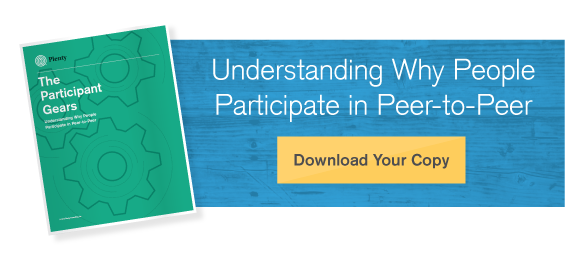The Team Member Your Nonprofit Needs
Do you consider yourself a “yes man”?
I certainly don’t. In fact, I pride myself on being a critical thinker. In most cases I try not to tell people what they want to hear, but instead what they need to hear - to make them better. I've found that this succinct and direct feedback is helpful when delivered tactfully, and am fortunate that this trait supports me in my role as a consultant.
I'm willing to guess that regardless of whether you're a consultant or not, you don’t consider yourself one either, right? I'll admit this was an easy guess considering many of us prefer not to place ourselves into buckets that have such negative connotations. Yes men are typically portrayed as sycophants, which in some cases, is true. However, I recently had a somewhat surprising experience when a client redefined the term for me. Let me take you back to that conversation.
Last week this particular client and I were discussing how organizations typically get bogged down in the logistical details of their fundraising events. Where should water stations go? Which direction should the stage face? How many people do we need to work the registration tent? You know the drill. And as we talked through these pieces our client began to stress the importance of the support staff and volunteers provide to participants on event day. Cue my epiphany. It was at this point in the conversation that it struck me – there is indeed a place for the yes men among us. Because the activity component of an event is often completely defined by the posture of the staff and volunteers on event day, it is extremely important that we have staff at our events that are willing to go above and beyond for participants. Simply put, we need yes men.
Yes men are naturally equipped with the right mentality to provide stellar participant support during an event. They are the people constantly looking for ways to give participants what they want. So how do you know if you currently have yes men in the right roles? Consider these scenarios:
- When a participant asks for an x-large shirt but the registration form says they requested a large, what happens?
- When someone asks for a vegetarian meal but their wristband says regular, what response do they get?
- When bag check-in closes at 8:30am and someone walks up at 8:32am, are they out of luck?
The client who said to me “we need our event staffed with yes men” was 100% correct. Of course we do. What a simple and important component of peer-to-peer fundraising events. Consider the scenarios above again. What happens if the answer is “sorry, we only have so many shirts”, or “I am not allowed to do that”, or “rules are rules”? The sum total of your participant’s experience has now been defined by that response.
This is why you need yes men. You have spent countless hours thinking about how to articulate your mission and impact so that you can attract people to your event and motivate them to fundraise. You have invested and sweated over every detail of your event’s logistics and experience, and can envision the day when all your work will culminate to build the vibrant community that powers your movement. But in order for that vision to become a reality, and for your investment and work to pay off, you have to ensure that your staff and volunteers are hardwired to figure out ways to say yes to every request. It may seem small, but it is a key piece to powering the activity component of your event.
Some people are yes men naturally. Others become yes men through their organization's culture and training. Consider your staff, who among them already fulfill this role, and which of them still need some encouraging and instruction? Here at Plenty we refer to this mentality as "not dropping the football." So start by making sure no one on your team is dropping the football when it comes to your event day service. And if you find that some of your team members are fumbling, consider what you can build into your organization's perspective on participant support that will influence their future performance.
When people are cared for, they will likely care back and assimilate into the community you are building. So find yourself yes men and give them the permission and ability to make your participants feel valued and cared for. You will provide a better experience and generate something every event leader wants – more happy (and repeat) participants.
Providing great participant support is just one way you can encourage repeat participation. Learn more about how you can increase participation in your peer-to-peer fundraising event by downloading our free e-book "The Participant Gears"!
Share this
You May Also Like
These Related Stories
Why I Registered: A Runner's Perspective On Participation
Going Bald: St. Baldrick's Fundraising Success Story




No Comments Yet
Let us know what you think